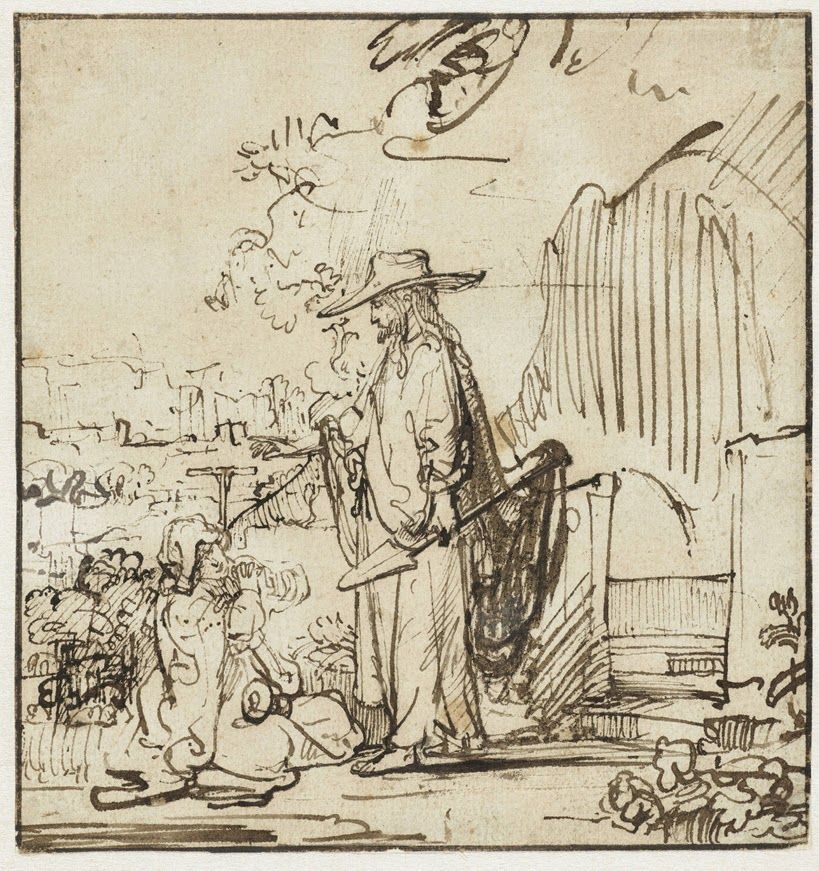Chapter Talk – 3rdSunday of Lent – March 24, 2019 – cycle-C
There are two pericopes in today’s gospel. The second is a parable and could be seen as a symbolic commentary on the first pericope. Jesus taught most often in parables. A parable contains metaphors, which communicate a deeper spiritual message. The metaphors Jesus often used to bring forth his teaching were images of farming and growth. In the parable of today’s gospel there are two central figures: the first is the ‘person’ who had a fig tree in his orchard; the second is the gardener. The parables as Jesus used them are speaking not to an outer reality but to an interior dynamic and reality. The person who owns the orchard says to the gardener ‘cut this tree down’ because ‘for three years I have come in search of fruit and found none.’ The response by the gardener is to ask him to leave this tree and he will cultivate the soil, enrich it and by another year’s end if it does not bear fruit, then we will cut it down.
Who is the owner of the field? Who is the gardener? What does their dialogue tell us? We see that the owner of the field listens to the gardener and has a change of heart. He is ready to follow the gardener’s advice and give more time for the tree to bear fruit. Where are we in this story? Are we the fig tree in need of cultivation and care? What is sure is that we are to be present and listening, listening with that religiously committed ‘I’ that says ‘yes, I will do whatever needs to be done for fuller life’…that says: ‘Here I am Lord, I am ready to do whatever it takes.’ The owner of the field says ‘cut this tree down for it is not producing fruit’. As we listen we may experience this voice as hard and demanding, still the owner is looking for fruit and he brings into consciousness that three years have passed and still no fruit. Well, thanks be to God that we are reminded that in one area of our life we are NOT producing fruit, and, then, we have this ‘gardener’ within us, the one who tends with love and compassion the ground of our being. The gardener knows the ways of growth and instinctively knows what to do to cultivate and nurture this tree into fruitful life. So the gardener says, I will work this soil more, add important nutrients to the soil and let’s wait and see if more attentive and willing work will help this tree bear the fruit it was created to bear. The owner of the field desires fruit out of all that he has created. The owner while demanding the fruit of repentance is ready to wait…he is patient in giving us time to respond. And remember we have the inner resources to help us in this process of growth: the gardener who will guide us in the work ahead.
Because of what precedes the parable, it is not farfetched to say that the key to understanding the parable is the word ‘repent’: a turning is asked, a change is asked and this change that is needed is so that our lives may be fruitful and our relationship with God closer. In Hans Urs von Balthasar’s words: “In this story the fruitless fig tree is not cursed, but it has stretched the owner’s patience to the limit. That one fertilizes it and works the soil around it is grace—a final grace that it has not earned. It is a grace offered to the tree, a grace that does not automatically produce fruit. Instead, the person symbolized by the tree, must produce fruit together with grace” (Light of the Word, p.286). We are given opportunity upon opportunity to change. The God of love will not abandon us. Repentance, this return, this putting aside a negative attitude or way, enables us to cooperate with grace. Repentance, this turning away from what does not produce life, enables us to work with grace to produce the fruit of our God-given nature.
To give Pope Francis the last word: this is from his Angelus talk given in 2016 for the Third Sunday of Lent:
“Unfortunately, each of us strongly resembles the tree that, over many years, has repeatedly shown that it’s infertile. But, fortunately for us, Jesus is like a farmer who, with limitless patience, still obtains a concession for the fruitless vine. ‘Let it alone this year’ — he said to the owner — ‘we shall see if it bears fruit next year’ (cf. v. 9). A ‘year’ of grace:….Have you thought about the patience of God? Have you ever thought as well of his limitless concern for sinners? How it should lead us to impatience with ourselves! It’s never too late to convert, never. God’s patience awaits us until the last moment.”
Abbess Kathy DeVico


